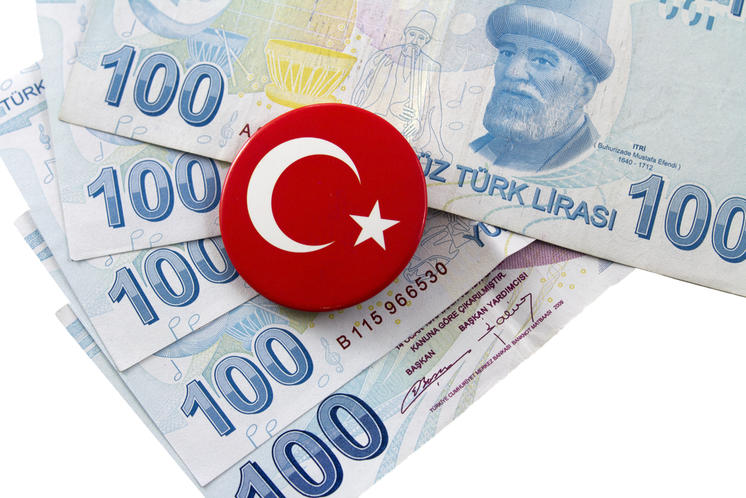Weekly Thoughts by Mirabaud Securities - 14 June 2019



U.S. stocks extended their recent climb on Monday, with the Dow reaching its longest daily winning streak in 13 months after the United States dropped plans to impose tariffs on Mexican goods and a couple of multibillion-dollar deals boosted the market. The Mexico trade news cheered investors, leaving the S&P 500 about 2% from its early May record high and the Dow above 26,000 points. But investors may now be trading more on hope than on reality…
Nevertheless, the week (Thursday evening) ended with a small gain for the US major indices (between 0.2% and 1%). In Europe, a small rebound also occurred (the SMI being the country with the biggest rebound). In Asia, while Japan rebounded slightly (in yen), the Chinese stock market climbed on the week, rebounding from its three-month lows, as investors expected greater policy support to offset impact from U.S. tariffs and cooling domestic demand.

According to the Organization for Economic Cooperation and Development’s (OECD) purchasing-power-parity model, the Euro is over 22% undervalued versus the dollar. And then there’s the “Big Mac” approach to gauging currency valuations, which shows the euro is about 15% too cheap. And finally, Trump said on Tuesday that the euro is “devalued” against the dollar, “putting the U.S. at a big disadvantage.”
Against G10 members, it’s interesting to notice that the dollar was weak against the Canadian Dollar, the Norwegian Krona and the Euro. The Australian Dollar, the New Zealand dollar and the Swedish krona were the biggest losers (vs. dollars). In emerging markets (still vs. dollars), the Argentinian Peso and the Mexican Peso were the biggest gainers. We saw some significant decrease on the Turkish lira, the Chilean Peso rand and the South Korean won.

Eurocontrol have released their latest industry monitor which shows that European airlines have endured a difficult first quarter of 2019. Even though Q1 is traditionally loss making, this year's performance is especially bad. Only two airlines - IAG Group and Wizz Air - recorded operating profits, though the latter's declined significantly. The poor results can be attributed to a number of factors including higher fuel prices, adverse currency effects, the Boeing 737 MAX being grounded and the timing of Easter. Forbes' expert aviation contributors see change in the air next year. From airline M&A to advances in technologies that will change the passenger experience to a slowdown in the torrent of outbound Chinese travel, here are their predictions for 2019. The big trend should be: Declining profitability, at least for the U.S. carriers. As the economy slows, it will be hard for demand to keep up with rising capacity and costs.

Even if it’s not a country anymore, Hong Kong is our main focus this week. The city is bracing for rare strikes and continuing protests over proposed legislation that would allow extraditions to mainland China. Local companies suspend work or allow flexible office hours on Wednesday to accommodate workers planning to demonstrate near the city’s Legislative Council. Opponents of the bill on Sunday staged one of the largest protests since the former British colony’s return to China: organizers said more than 1 million participants showed up, while police put the figure at 240,000. The escalating standoff may also have just claimed its first financial casualty. Goldin Financial Holdings Ltd. is dropping its successful HK$11.1 billion ($1.42 billion) bid for a land parcel located in the Kai Tak area in Kowloon, Hong Kong, the company said in a filing to the city’s stock exchange Tuesday. In voting against proceeding, the directors cited “recent social contradiction and economic instability” that would negatively affect Hong Kong’s commercial property market.

Shares of the fake meat company (BYND) have maintained the forward momentum from the day of the company's IPO (where they rallied 150%) and have continued to climb, even as the broader market endured one of its most tumultuous stretches in recent memory. However, the stock tumble on Monday, after analysts at JP Morgan downgraded the company's shares from "overweight" to "neutral" - becoming the first team of analysts at a top American investment bank to do so - just two sessions after the bank raised its price target from $97 to $120. Though JPM's team remains extremely bullish on BYND's long-term growth prospects, justifying its present valuation would require alterations to JPM's discounted cash flow model - namely, higher long-term revenue and gross margin growth projections - that the bank's team isn't yet comfortable making. Overall, short interest just reached $814 million, or 5.87 million shares shorted, representing more than 50% of Beyond Meat’s float. The company is the sixth-largest short bet in the domestic packaged foods and meat sector. First there was bitcoin (2017), then the marijuana stocks and now BYND (2019)?
Portugal confirms / Declining rates: Consequences / Donald Trump is watching closely the S&P 500 / The end of the civil aviation?
Please feel free to ask for more information if interested.
“Hard and Soft Brexit” (Opportunities & Threats) is on the cliff this week after the Brexit was postponed to 31 October. There is still a risk, however, that the House of Commons will approve the withdrawal agreement before May 22nd.
SWOT stands for Strengths, Weaknesses, Opportunities and Threats, the French equivalent of FFOM analysis (Forces, Faiblesses, Opportunités et Menaces). While SWOT analysis can be used to develop a company's marketing strategy and evaluate the success of a project (by studying data sets such as company's strengths and weaknesses, but also competition or potential markets), I decided several years ago to adapt it as a way to analyse financial markets. SWOT analysis allows a general development of markets by crossing two types of data: internal and external. The internal information taken into account will be the strengths and weaknesses of the market. The external data will focus on threats and opportunities in the vicinity. Finally, and most interestingly, there is a table that will evolve according to current events, which will allow it to reflect the underlying trend in the financial markets on a weekly basis.
Diese Veröffentlichung wurde von Mirabaud erstellt. Sie ist nicht zur Verteilung, Verbreitung, Veröffentlichung oder Nutzung in einer Gerichtsbarkeit bestimmt, in der eine solche Verteilung, Verbreitung, Veröffentlichung oder Nutzung untersagt wäre. Sie ist nicht für Personen oder Unternehmen bestimmt, an die die Übersendung dieser Veröffentlichung rechtswidrig wäre.
Mehr lesen
Author
Weiter zu
